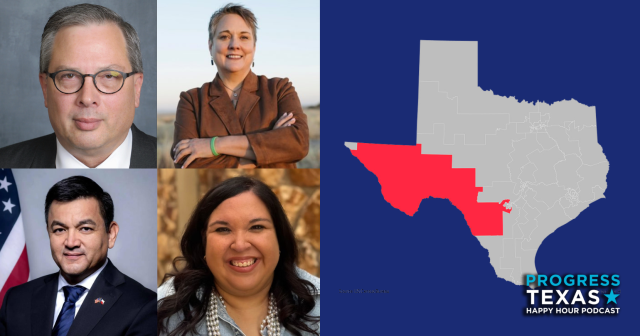District Court's Radical Ruling: Air Belongs to Everyone
Skipping to the end of the July 9 ruling in Angela Bonser-Lain, et al. v. Texas Commission on Environmental Quality (TCEQ), we find a disappointing but predictable resolution to a state-level suit brought by environmental non-profits and precocious minors. District Court Judge Gisela Triana supports the refusal of the TCEQ to regulate carbon dioxide emissions. Citing open litigation at the federal level, she finds the legal climate in which the agency operates so “uncertain” that its stubborn inaction constitutes “a reasonable exercise of its discretion.”
Yet, environmental groups across the nation have cited Triana’s decision as a watershed—or, failing that, as an encouraging sign from an environmentally recalcitrant state. Their optimism draws inspiration not from the ruling itself but from Triana’s rejection of the two-part defense offered by TCEQ.
The Commission had argued that it lacked the legal authority to enforce atmospheric protection regulations above or beyond those mandated by the Federal Clean Air Act (FCAA). The claim relied upon the legal doctrine of preemption, which holds that federal laws take precedence over state laws on matters of national character. Triana dismisses it in with admirable brevity, finding that “the FCAA requirement is a floor, not a ceiling, for the protection of air quality, and therefore the Commission’s ruling on this point is not supported by law.” To justify her interpretation, she draws the TCEQ’s attention to a passage in the FCAA that protects individuals’ right “under any statute or common law” to seek enforcement of an emission standard or relief against a state agency.
Admittedly, this part of the decision is hardly controversial. To the non-legal mind, at least, an attempt to interpret the FCAA as a safeguard on the right to emit up to a specified level (thereby forbidding states from imposing stronger clean air standards) seems absurd. TECQ probably did not expect to win this point but tossed it out as a roadblock for the plaintiff’s most powerful argument: air and the atmosphere are rightful components of the public trust, which the government must protect for the common good and for future generations.
Although the public trust doctrine is ancient and well-entrenched, judges have previously restricted its application to water and, on occasion, to wildlife. Triana locates a bolder reading in Article XVI of the Texas Constitution, which identifies “the conservation and development of all of the natural resources of this State” as public rights and duties. She argues that the Legislature conferred those duties onto the TCEQ in the Texas Clean Air Act. For example, it gave the TCEQ the authority to “control air contaminants as necessary to protect against adverse effects related to…climatic changes, including global warming.” If federal courts hold that carbon dioxide is a contaminant, Triana concludes, the TCEQ must take legal responsibility for its regulation.
Triana’s attempt to redefine “public trust” under existing documents will surely attract academic disputes of minimal interest to the public. However, the outcome of those disputes—if they go far enough—could shape judges’ and legislators’ understanding of the role of the state. According to Professor Mary Wood from the University of Oregon, the public trust doctrine is a manifestation of the social contract between government and people: the government, as trustee, “must protect…natural assets for the beneficiaries of the trust, which include both present and future generations of citizens.” Wood argues that judges should use the doctrine to bolster future generations’ political clout. Since judges, unlike legislators, are free to take the long view, the former can prevent the latter from choosing irresponsible environmental policies. Just as trustees must not permit current beneficiaries from eroding assets meant for future beneficiaries, legislators must not permit emitters and polluters from destroying the climate needed to sustain human life.
Triana’s decision is the first step towards greater intergenerational equity; progressives can only hope that other judges follow suit. Of course, several years will pass before Triana’s decision gains widespread acceptance. The public trust decisions of the future may confer an impoverished, heat-soaked atmosphere onto posterity rather than the gentle breezes environmentalists have in mind. Nevertheless, Texas progressives can take comfort in the knowledge that, sooner or later, the TCEQ will have to emerge from its uncertain legal climate and live up to its name. In the meantime, they will have to occupy themselves by ridiculing Governor Perry’s views on global warming and Attorney General Abbot’s suits against the EPA.
DONATE
Your donation supports our media and helps us keep it free of ads and paywalls.








